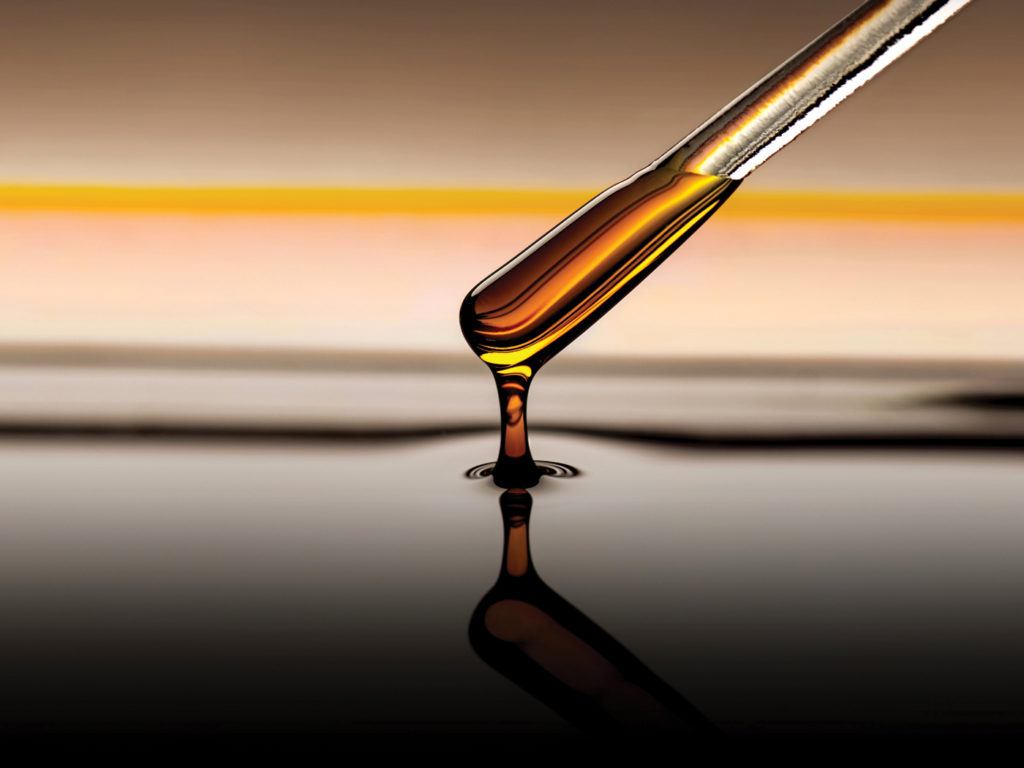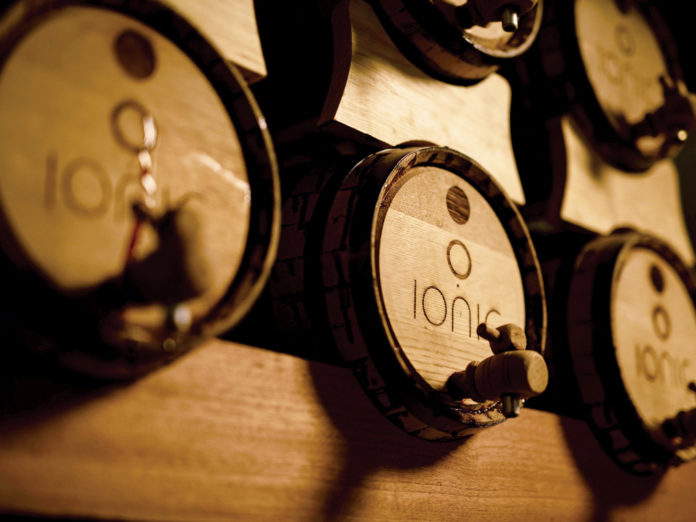Christian Struzan grew up in a time and place where cannabis use no longer was covert or a sign of rebellion.
Ironically, Hollywood—where cannabis was a part of everyday life—perpetuated the stoner image. So, when he co-founded vape manufacturer Ionic in his hometown in 2012, Struzan set out to change the perception.
“The brand identity for Ionic is simple,” he said. “It was to reinvent cannabis and appeal to the professional, hardworking, respectable, functioning human being with a family and a job who also uses cannabis.”
Coming from the advertising and branding world where he developed campaigns for big Hollywood movies and global beverage alcohol brands Stella Artois, Guinness, and Beck’s, Struzan was well-versed in the art of marketing. He said he was intrigued by the challenge of creating a similar phenomenon in the nascent cannabis industry.
“If we could change people’s minds about cannabis, change their perceptions of people that used it, then we could effect positive change,” he said.
From the outset, Struzan avoided iconography like marijuana leaves and insider jargon such as 420 and dank. “We wanted to step away from all the things that would instantly, even if subliminally, trigger those deeply rooted stigmas and previously associated prejudices,” he said.
In this, Ionic was way ahead of the curve. When the company launched, recreational products were still hiding behind a façade of medical marijuana. “We ran headlong into creating a brand that celebrated recreational use and demanded to be taken seriously,” Struzan said. “We had full intention of reframing the conversation about cannabis and those that discreetly use it. We wanted to bring it out of the dark and reset the bar.”
But he knew the proof had to be in the oil. While the brand image was sophisticated and sexy, the oil had to be the purest, Struzan noted. “A huge majority of our budget is invested in sourcing premium raw materials, equipment, the cleaning of our oils, and pesticide tests on every single batch that leaves our facilities,” he said. “Our products are twice and three times refined, until we feel that they are perfect.”
He’s particularly proud of the company’s recent implementation of the Ionic Clean Certified program, which tests 100 percent of outbound material for pesticides and other harmful agents before shipping to retail stores.
“Although not required by state regulations, we decided that until cannabis is legal at a federal level and federal regulation is enacted, it is our responsibility to regulate our products so as to protect our customers and our products,” he said.
The pursuit of purity led Ionic to use food-grade CO2 extraction even though the process is more expensive than other options. That bet has paid dividends. In Washington State, Ionic is now the number one vape brand, Struzan said. “We have seventy-two direct competitors and 1,100 in our segment,” he said. “I would say that is a pretty crowded and competitive market, [but] we always put our customers first. We listen when they have feedback or criticism, and we never stop looking for ways to improve our products.”
Part of the reason for the company’s success, Struzan is certain, can be attributed to a very clear concept of who Ionic’s customers are: people who use cannabis as an augmentation to their already busy and interesting lives. More specifically, Ionic’s tribe is composed of people who use cannabis before a collaborative endeavor or as anenrichment during a social event or experience with friends. It’s all in the URL: Ionic.social. “We believe our products are best when enjoyed in a social setting,” said Struzan.

New face, new product
Ionic went all-in on the high-end, socially engaged image with a makeover that spiffed up the trappings and refined the message. Seven years ago, marketing phrases like “elevated” and “redefining” didn’t appear in retail cannabis messaging. Taking branding cues from cosmetics and beverage alcohol, Ionic repositioned itself as the new “it” brand by invoking the small-batch cool exuded by fine whiskeys and handmade cigars. “The change in our packaging looks and product lines signals the change we are having from within our brand,” Struzan said. “The evolution of our message hopefully will spawn more positive change within the industry.”
Along with its new look, the company launched a new product line: Ionic Cask—oil crafted in small batches and aged in charred oak barrels. An exclusive run of oil and a custom pod device designed to maximize flavor and finish is presented in numbered, limited-edition black-walnut boxes. The product radiates elegance and refinement.
“The reaction has been amazing to the Ionic Cask launch,” Struzan said. “As a lifestyle brand, we aim to be aspirational. Our products aren’t something to hide; rather, they are meant to be something one can be proud of and share.”
Spreading the word
When it comes to sharing his marketing message, Struzan employs traditional advertising mixed with digital channels and special events. The company’s most effective marketing tool, he said, is understanding the consumer experience and having a brand image that resonates. “Design is the silent brand ambassador,” he said.
Ionic’s carefully measured growth strategy over the past few years is speeding up with the expansion of the company’s retail footprint from Washington state to the entire west coast, largely on the back of the popular, and original, Black Line. Struzan said expansion has only begun. He believes the small-batch and premium oil sector could follow the post-prohibition trajectory of the scotch and whiskey industries, when many small, regional labels became globally recognized. “People know when something is created with pride,” he said.
Even though things look good for Ionic, Struzan still suffers some sleepless nights. Like any other business, Ionic faces challenges, including protecting margins and fighting for retail shelf space. Complications are compounded by the lack of representation, protection, and rights for cannabis businesses at the federal level. “This [industry] definitely is not for the weak of spirit,” he said.








